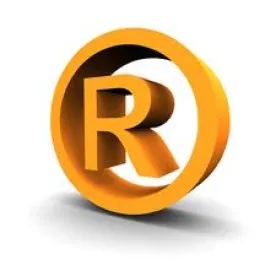Registering a trademark for your brand is only the beginning. If you want to achieve real commercial success with your great idea, you will probably need to get other individuals or companies involved with the manufacture or sale of products bearing your trademark. While various market forces determine how well your products will sell, a well-crafted trademark license agreement plays a major role in determining how much you, the owner of the trademark, will benefit financially from the commercial success of the product. A trademark license agreement will also protect your trademark and the work you’ve put in to build goodwill with consumers. Working with an intellectual property lawyer to draft an airtight trademark license agreement can safeguard your financial and brand interests as well as those of the licensee.
Be Clear About Licensee Requirements
In a trademark license agreement, you, the owner of the registered trademark, are known as the licensor. The party that pays you money in exchange for the right to market or manufacture products bearing your trademark is known as the licensee. In the trademark license agreement, you should be as specific as possible about what trademark rights you are licensing and what the licensee is and is not allowed to do with your trademark. If you can think of any context in which it would be inappropriate to use your trademark, specify in the agreement that the licensee is not allowed to use it for this purpose. If, for example, you own the trademark to a children’s character, and you want to preserve their child-friendly image, say so. Don’t want your trademark adorning beer bottles? Specify this in the agreement. Don’t want your character hawking weight loss supplements? Put it in writing.
Be Clear About the Duration of the Agreement and the Timetable for Payments
While the duration and payment terms are not the real meat of a trademark license agreement, mistakes in these articles of the agreement can lead to costly disputes and loopholes. Do not just state how long the agreement lasts; specify what happens at the end of that period. If the parties take no further action, does the agreement automatically terminate, or does it automatically renew? Likewise, does the licensee pay you a fixed amount or a share of their sales, and do they pay you a lump sum at the beginning of the contract period, or do they pay you in monthly or quarterly installments?
Make Sure Your Trademark License Agreement Includes All the Essential Information
If you are drafting a trademark license agreement by yourself or using a template you downloaded from the Internet, it is easy to omit important pieces of information, but these omissions could cost you a lot of money in the long term. For example, the license agreement needs to make clear who owns any new intellectual property that the licensee creates incorporating your trademark. Also, you need to be sure to delineate the geographic region where the licensee may sell the licensed products and to specify which courts will have jurisdiction to decide disputes that arise from the agreement. Likewise, do not inadvertently invalidate your agreement by listing the legal name of one of the parties incorrectly.




 />i
/>i

